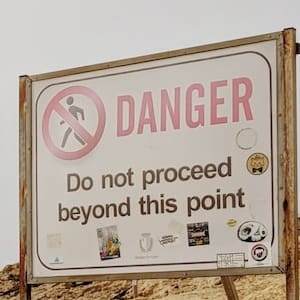raise the stakes: Idiom Meaning and Origin
What does ‘raise the stakes’ mean?
The idiom "raise the stakes" means to increase the level of risk or intensity in a situation, typically by increasing the amount of money or resources involved.

Idiom Explorer
The idiom "run a risk" means to take a chance or engage in an activity that could have negative consequences or uncertain outcomes.
The idiom "roll the dice" means to take a risk or make a decision without knowing the outcome or consequences.
The idiom "rise to the occasion" means to perform exceptionally well or exceed expectations when faced with a challenge or difficult situation.
The idiom "rise to the challenge" means to confront and overcome a difficult situation or task with determination, resilience, and success.
The idiom "raise the spectre" means to bring forth or introduce a troubling or frightening idea or possibility that causes fear or concern.
The idiom "raise the roof" means to create a loud uproar or excitement, usually in response to something notable or impressive. It is often used in a celebratory or enthusiastic context.
The idiom "raise the bar" means to set a higher standard or expectation for something, often with the intention of encouraging improvement or achieving a higher level of performance.
The idiom "raise someone's spirits" means to make someone feel happier or more optimistic.
The idiom "raise someone's shag" means to provoke or irritate someone, causing them to become angry or upset.
The idiom "raise someone's hackles" means to make someone very angry or annoyed.
Surprising Insight
The idiom "raise the stakes" is a commonly used phrase in English that has its origins in gambling. When someone "raises the stakes," they are increasing the level of risk or difficulty in a situation, usually in order to achieve a greater reward or to make the outcome of the situation more significant.
The exact origins of the idiom are unclear, but its connection to the world of gambling suggests that it likely emerged in the late 19th or early 20th century. It is often used figuratively in non-gambling contexts to describe situations where someone is taking a bold or daring action to increase the potential benefits or consequences.
The idiom "raise the stakes" is widely understood and used in both formal and informal contexts. It has become a common expression in everyday language, often used in discussions about competitive situations, negotiations, or decision-making processes. It conveys the idea of intensifying the risks or rewards associated with a particular situation, adding a sense of excitement or urgency.
For example, in a business context, someone might "raise the stakes" by increasing their financial investment in a project, thereby increasing the potential returns or losses. In a personal context, someone might "raise the stakes" by setting higher goals for themselves, pushing themselves to achieve more or take on greater challenges.
The idiom "raise the stakes" is closely related to the concept of risk-reward trade-offs, where individuals weigh the potential gains against the potential losses before making a decision. By raising the stakes, individuals are consciously choosing to increase the potential risks or rewards, often with the hope of achieving a more favorable outcome.
While the idiom "raise the stakes" is commonly associated with competitive or high-stakes situations, its usage extends beyond these contexts. It can also be used metaphorically to describe situations where someone is intensifying the level of commitment or involvement. For example, in a romantic relationship, someone might "raise the stakes" by expressing their deep feelings or making a significant commitment.
The idiom "raise the stakes" is related to other idioms that carry a similar meaning. One such idiom is "high-stakes," which refers to situations that involve a high degree of risk or potential loss. When someone raises the stakes, they are elevating the level of risk or difficulty, therefore making the situation high-stakes.
Another related idiom is "raise the bar," which means to set a higher standard or expectation. When someone raises the stakes, they are essentially raising the bar and challenging themselves or others to perform at a higher level.
Similarly, the idiom "rise to the challenge" is connected to raising the stakes. When someone raises the stakes, they are presenting a challenge or obstacle that others must face. This idiom implies that individuals must rise to the challenge and meet the increased level of risk or difficulty.
One final related idiom is "make a mountain out of a molehill." This idiom refers to the act of exaggerating or making something seem more significant or difficult than it actually is. When someone raises the stakes, they are essentially making a mountain out of a molehill by amplifying the risk or difficulty of a situation.
The idiom "raise the stakes" originated from the world of gambling and has come to be widely used in English to describe situations where someone increases the level of risk or difficulty in order to achieve a greater reward or make the outcome more significant. It is a versatile idiom that is used in both formal and informal contexts, conveying a sense of boldness, urgency, or commitment. By "raising the stakes," individuals are consciously choosing to intensify the risks or rewards associated with a particular situation, often with the hope of achieving a more favorable outcome.
Example usage
Examples of how the idiom raise the stakes can be used in a sentence:
After losing the first round, the poker player decided to raise the stakes and double the amount of money in the pot.
The negotiations were becoming heated, and each side was starting to raise the stakes by making more demanding and aggressive offers.
In order to create more excitement and competition, the game show host decided to raise the stakes by offering a larger cash prize to the winner.
More "Gambling" idioms



